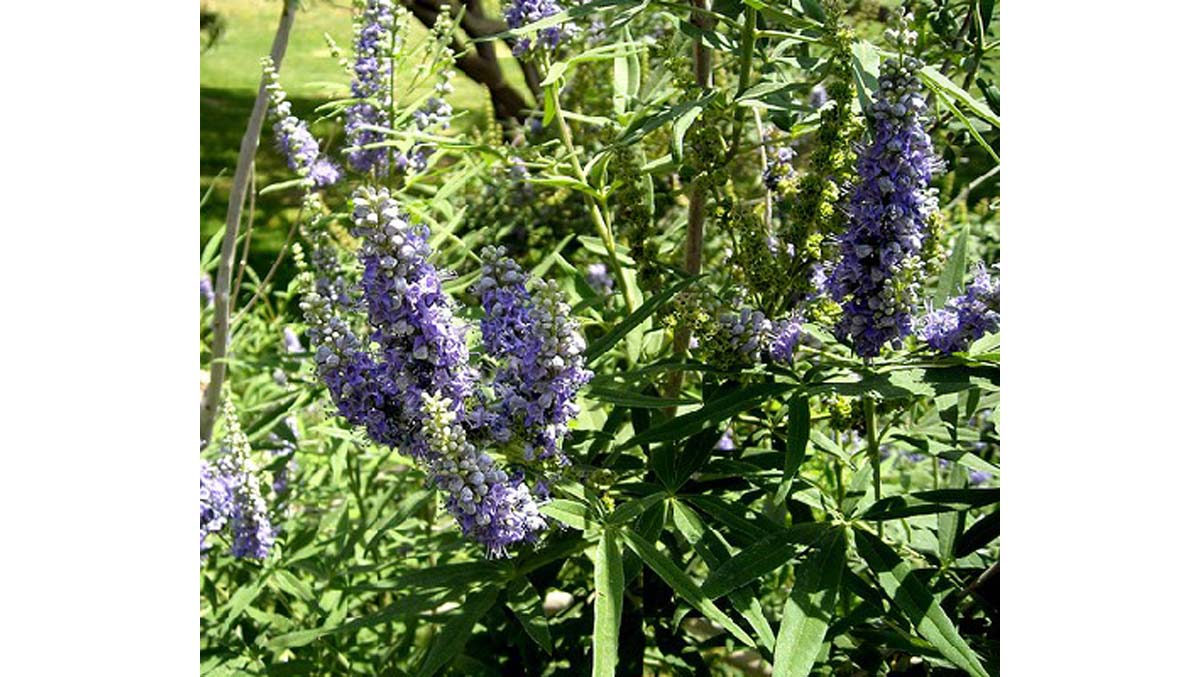Table of Contents
The first days and weeks of pregnancy are a critical time in the life of the developing child. Even tiny amounts of DNA-damaging teratogens can cause damage to the embryo or even induce spontaneous abortion.
The one commonly used herb that every woman who might become pregnant should avoid is chasteberry, also known as Vitex and agnus-castus. The chasteberry is the fruit of the chastetree, so named by ancient Greeks and Romans who noticed that consuming the fruit resulted in greatly diminished sexual desire in men (and, in extreme overdose, atrophy of the testicles) and somewhat diminished sexual desire in women.
Chasteberry contains some compounds that are chemically similar to estrogen and other compounds that affect the production of the pleasure chemical dopamine in the brain. Women who take chasteberry products usually experience less breast pain and swelling during their periods, and they often receive relief from other symptoms of PMS. And because chasteberry is reputed to increase fertility, many women take it when they are seeking to become pregnant.
 Chasteberry actually does increase women's fertility if it is taken only during the first 10 days of a woman's menstrual cycle, when she cannot get pregnant. It contains compounds that bind to estrogen receptors in the bones, brain, heart, bladder, and uterus. As these receptors are activated, the uterus grows a thicker lining that, provided the woman using the herb does not have endometriosis, makes the uterus a more receptive place for the fertilized egg to be implanted to grow into an embryo. The effects of the herb are beneficial before ovulation.
Chasteberry actually does increase women's fertility if it is taken only during the first 10 days of a woman's menstrual cycle, when she cannot get pregnant. It contains compounds that bind to estrogen receptors in the bones, brain, heart, bladder, and uterus. As these receptors are activated, the uterus grows a thicker lining that, provided the woman using the herb does not have endometriosis, makes the uterus a more receptive place for the fertilized egg to be implanted to grow into an embryo. The effects of the herb are beneficial before ovulation.
But stimulating estrogen receptors sites after ovulation is not a good thing. Different hormones are associated with making the womb a hospitable place for the growing fetus. Taking chasteberry after an egg has been fertilized actually increases the likelihood it will be aborted, the would-be mother never knowing she had conceived. Women who wish to become pregnant should not take this herb at any time except the first 10 days after menstruation. (Women who have periods shorter than 20 days should not take it for longer than the first week after menstruation.) The effects of this herb are strong enough to interfere with the early development of the embryo, but not strong enough to be used to induce an abortion after a woman has become aware she is pregnant.
Chasteberry contains some compounds that are chemically similar to estrogen and other compounds that affect the production of the pleasure chemical dopamine in the brain. Women who take chasteberry products usually experience less breast pain and swelling during their periods, and they often receive relief from other symptoms of PMS. And because chasteberry is reputed to increase fertility, many women take it when they are seeking to become pregnant.

But stimulating estrogen receptors sites after ovulation is not a good thing. Different hormones are associated with making the womb a hospitable place for the growing fetus. Taking chasteberry after an egg has been fertilized actually increases the likelihood it will be aborted, the would-be mother never knowing she had conceived. Women who wish to become pregnant should not take this herb at any time except the first 10 days after menstruation. (Women who have periods shorter than 20 days should not take it for longer than the first week after menstruation.) The effects of this herb are strong enough to interfere with the early development of the embryo, but not strong enough to be used to induce an abortion after a woman has become aware she is pregnant.
Continue reading after recommendations
- Dugoua JJ, Seely D, Perri D, Koren G, Mills E. Can J Clin Pharmacol.Safety and efficacy of chastetree (Vitex agnus-castus) during pregnancy and lactation. 2008 Winter, 15(1):e74-9. Epub 2008 Jan 18
- Photo courtesy of thoughtfulbloke on Flickr: www.flickr.com/photos/thoughtfulbloke/3813522035
- Photo courtesy of Paul Garland on Flickr: www.flickr.com/photos/paul_garland/2595630379/
- Photo courtesy of Ocean of Stars on Flickr: www.flickr.com/photos/ocean_of_stars/3885390569/
- Photo courtesy of

